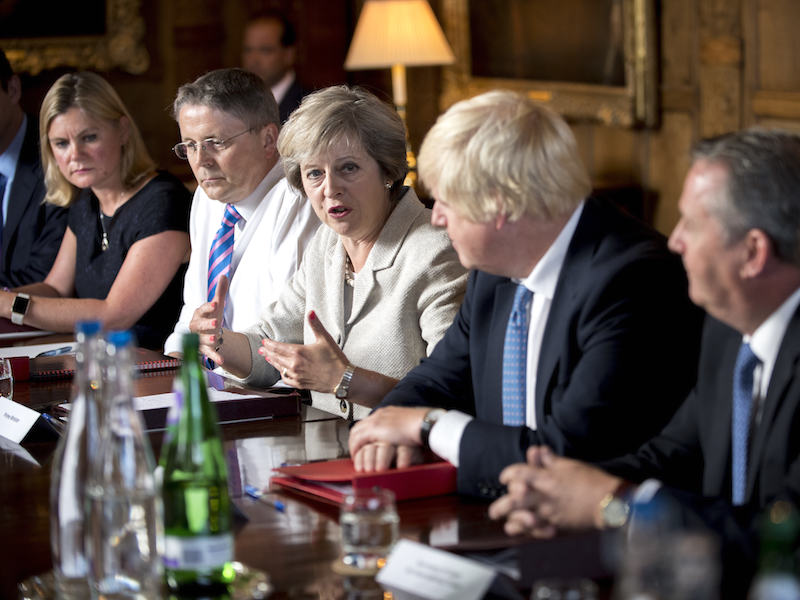The decision by the voters of the United Kingdom to exit the European Union was an unexpected one, at least from the perspective of the majority of politicians and policymakers in both Westminster and Brussels. Accordingly, much of commentary has focused on finding some way of walking the result back, or taking a tone of bewilderment that it could have happened in the first place. The trends underlying the Brexit vote were preexisting for those that wished to see them. Mostly, these consisted of growing distrust in the judgement of experts and alienation from the political process in areas outside of major urban centres, along with concerns about immigration, which ranged from reasonable to outwardly xenophobic (and were stoked by much of the UK’s tabloid press). Though there is much to critique in political environment which surrounded both the decision to call the referendum in the first place and the run-up to the vote itself, the fact remains that the decision has been made. The consequences, both political and economic, of the vote are already apparent in the UK, even though it will take many months, if not years, for the full implications of Leave’s victory to come to fruition.
An even larger fallout, though, may be the effect on the rest of the European Union, with Brexit adding to the problems of an already overextended EU bureaucracy. With resurgent nationalist movements right across the continent, most prominently in France and the Netherlands, hailing the UK’s decision to leave and calling for similar referendums in their own nations, the potential for another nation to make the same decision should not be taken lightly. At the same time, among the variety of crises faced by the EU in the present moment, it is far from clear that Brexit need be another. Rather, if played properly, this could be less a situation of panic than one of opportunity. Though life without Britain is certainly a loss for the European Union, it is not necessarily a fatal one, and a British exit may allow for the creation of a more coherent definition of the “European project” in the future.
Though it may have seemed difficult to conceive of prior to the referendum result, there was a time when British membership within a converging political and economic union with the rest of Europe was far from a forgone conclusion. Indeed, governments of both the left and the right in the United Kingdom were reluctant to even seriously consider joining various precursor projects to the EU until the late 60s. The reasons for this varied, with the left wary of the limits to state control of the economy put in place by the European treaties and the right wanting to keep Britain at the centre of the Commonwealth rather than as a mere partner in Europe.
Though the resolution of the Suez Crisis put a virtual end to the United Kingdom’s ability to play an independent major global power role, and caused then Conservative Prime Minister Harold MacMillan to make a belated turn towards Europe, the UK would not actually join the EEC until January 1973. It is critical to note that the backdrop to this was a British economy struggling with high inflation and low productivity growth and, by contrast, a continental economy experiencing robust growth and innovation. It was hoped that, in this context, entering the Common Market would provide opportunities for export markets and knowledge transfer, giving the UK’s economy a proverbial “shot in the arm”. Though EEC membership would remain a contentious issue for years hence, with the Labour Party explicitly backing exit until 1987, as long as the pitch for membership was about common markets and economic benefits, most of the British public appeared willing to go along.
The aspects of European integration which were more political in nature, however, were always more contentious. Margaret Thatcher was a booster of the common market, in accordance with her general adherence to the principles of free trade, but famously railed against the UK’s contribution to the EU’s common budget (and negotiated a “rebate” in 1984 which returned some of it). Under the Conservative government of John Major, Britain negotiated an opt-out of the so-called “Social Chapter”, which provided for transnational workplace and social welfare rights which were seen as greater than those in Britain and eroding of policy sovereignty. Under Tony Blair, the UK later would sign on to the Social Chapter, along with bringing British human rights law in line with the European Court of Human Rights. Indeed, the general shift in Euroscepticism as a feature of the left to one of the right (and the related defense of the EU by the UK’s broad centre-left) can be seen as the result of European institutions taking on a role of sociopolitical norm setting, in addition to one of increasing market freedom.
In this sense, the centre-left was given the hardest task in the referendum context, as it was forced to defend a set of institutions which many of its core supporters see as responsible for a great deal of economic misery across Europe. This is not necessarily wrong, as both the EU’s austerity programs and its clumsy response to the refugee crisis seem to give lie to the notion of “social Europe” that those within Labour and other centre-left parties were seeking to defend. Though a reasonable case could still be made that the EU served as a rights backstop in the British context, it is not entirely surprising that many viewed this argument with a high degree of skepticism.
For the remaining countries of the EU, however, this may be an opportunity to take stock of what has gone wrong and redouble efforts towards integration which better serve all members. The United Kingdom’s continued support for EU membership, particular on the political right, was largely based on a transactional, economic understanding of gained benefits and resisted the political integration elements of the Union. An UK-less EU is not an inconceivable notion, indeed it was the status quo for much of the early years of European cooperation, and it removes one of the key contradictions which prevented further integration. A true death knell for a united Europe would be if a core continental member (e.g. the Netherlands, France, Germany) were to leave, which is a more remote possibility at this time.
That said, the recent noises trending in this direction from nationalist parties in those core members should give EU policymakers pause. Britain’s connection to the European Union was always more tenuous, but the decision by its electorate to leave nevertheless speaks to a feeling of alienation which is shared amongst nations. Brexit appears likely to be a hardship for the UK itself, but it need not necessarily be for Europe as a whole. In order to avoid this, though, those in decision making roles should view the recent events as a wakeup call and a potential sign of worse things to come, if direction is not changed.
Photo: “PM holds Chequers Cabinet” (2011), by Number 10 via Flickr. Licensed under CC BY-NC-ND 2.0.
Disclaimer: Any views or opinions expressed in articles are solely those of the authors and do not necessarily represent the views of the NATO Association of Canada.




